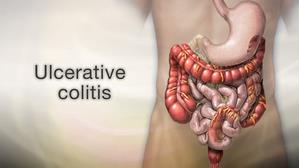( MENAFN - IANS) New Delhi, Oct 26 (IANS) A team of researchers has linked a specific gene in the ulcerative colitis (UC) disease to an increased risk of colon cancer. Ulcerative colitis is an inflammatory bowel disease that afflicts an estimated five million people worldwide and that is linked to an increased risk of colon cancer. The research, published in the journal Science Advances, points to a new way to stop the disease from progressing.
Ulcerative colitis affects the large intestine, specifically areas called“crypts,” tube-like glands within the epithelial tissue that lines the intestine. When the colon is injured, epithelial crypt cells enter a“repair mode.” However, in patients with UC and UC-related colon cancers, these cells become stuck in repair mode, which scientists refer to as a“regenerative cell state.
” In the study, Kimberly Hartl from the Berlin Institute for Medical Systems Biology of the Max Delbruck Center (MDC-BIMSB) and Charite– Universitatsmedizin, found this defective repair mechanism is linked to a non-functional p53 gene, which plays a key role in regulating the cell cycle and in repairing DNA. “In patients with ulcerative colitis who are at high risk for developing cancer, we could potentially target aberrant cells and get rid of them early, before any cancer occurs,” said Professor Michael Sigal, a senior author of the paper. “If there is no p53, cells remain in a proliferative state,” Sigal added.
The study suggests a pote.


















